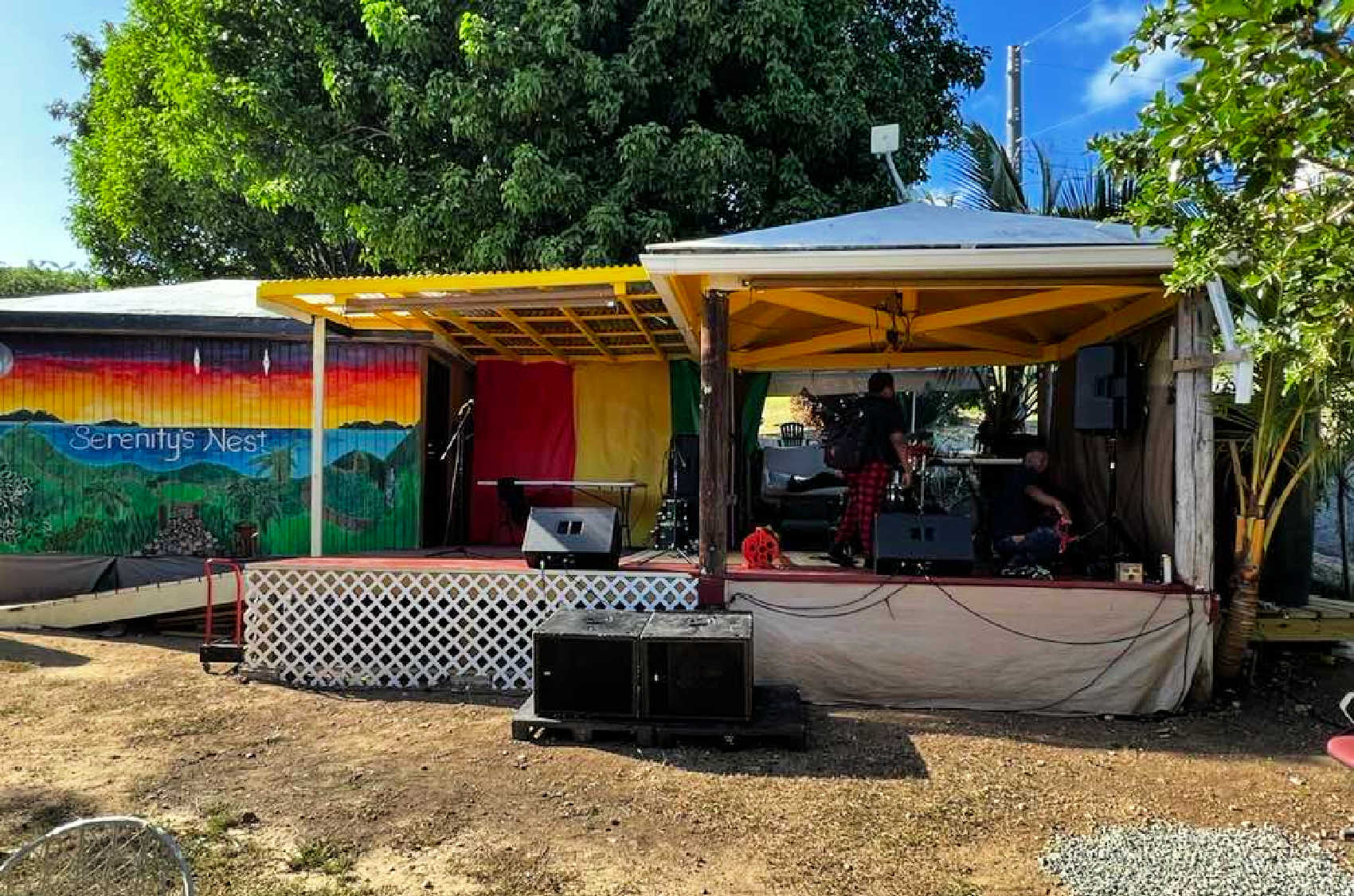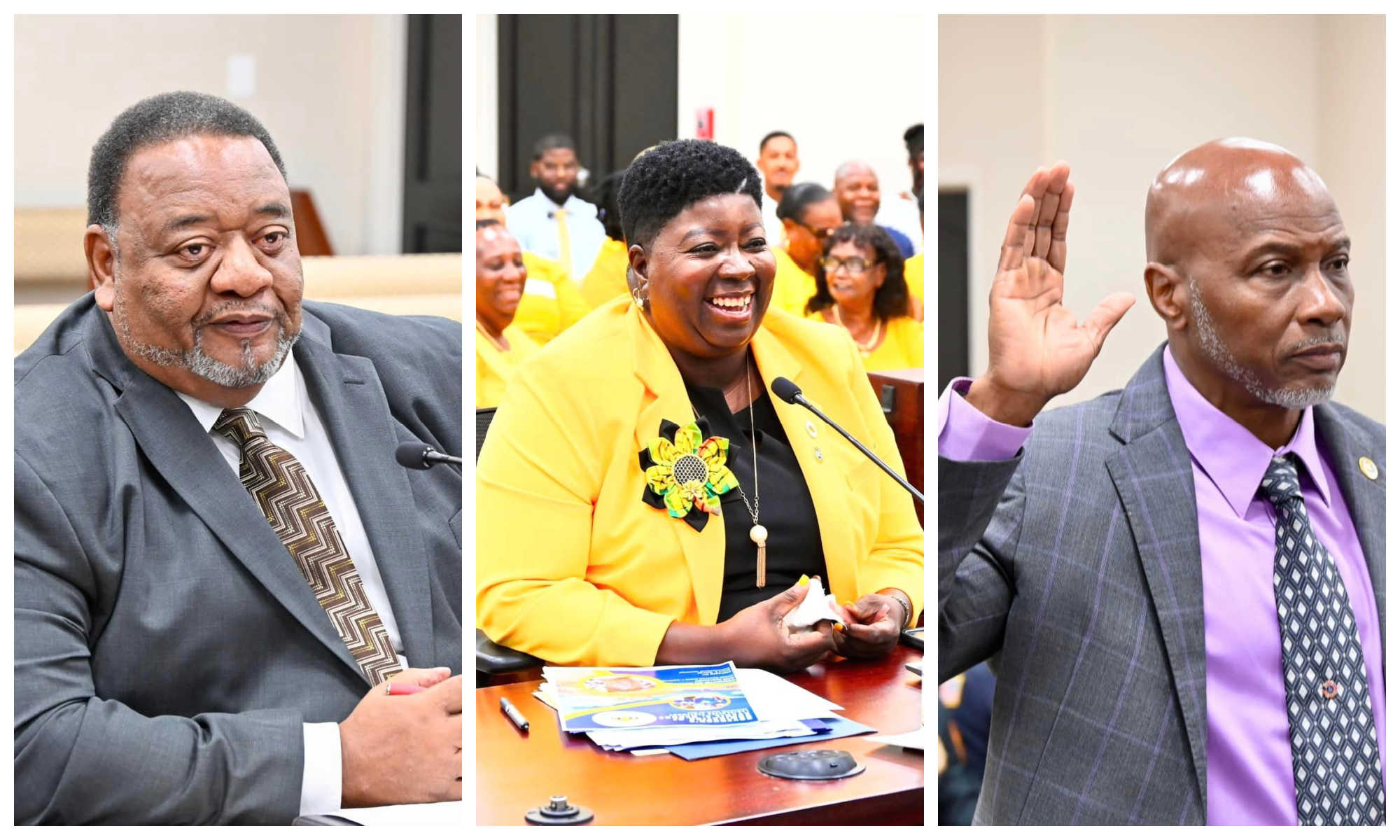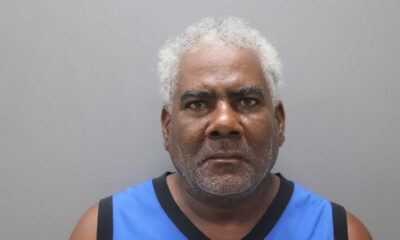Senate
New Legislative Effort to Address Non-Consensual Sharing of Explicit Images in the Virgin Islands

The Virgin Islands Senate recently took a significant step toward protecting individuals from the unauthorized dissemination of sexually explicit images, commonly referred to as “revenge porn.” Senator Donna Frett-Gregory spearheaded the initiative, presenting Bill 35-0182 to the Committee on Homeland Security, Justice, and Public Safety. This proposed legislation aims to amend Title 14, Chapter 51 of the Virgin Islands Code, introducing stringent measures against the non-consensual sharing of explicit images.
With the advent of digital technology, the phenomenon of revenge porn has emerged as a disturbing trend, victimizing individuals by exposing their privacy to public scrutiny without consent. The bill proposes to tackle this issue head-on by categorizing the first offense as a misdemeanor, punishable by up to a year in prison, and elevating subsequent offenses to felony status. Victims would have two years to file a criminal complaint from the moment they become aware of the incident.
The Virgin Islands joins a concerted effort across 48 states, the District of Columbia, Guam, and Puerto Rico, where similar laws have been established to curb this invasive practice. The bill specifically targets the intentional distribution of non-consensual sexually explicit material aimed at harassment, intimidation, or causing harm to the victim, marking it as the territory’s 15th domestic violence crime.
Timothy Perry, representing the Department of Justice for St. Thomas, St. John, and Water Island, acknowledged the bill’s intent but suggested refinements to its language to eliminate potential legal defenses that could hinder prosecution. He highlighted the need for clarity on the intent to harass and knowledge of the necessity for consent.
The Virgin Islands Police Department (VIPD), through Assistant Commissioner Mario Brooks, expressed support for the bill, underscoring the traumatic impact of non-consensual pornography on victims. Brooks, however, raised concerns about the bill’s age limitations, pointing out the significant incidence of such crimes among minors, especially within educational settings.
The bill has ignited a broader discussion on the resources required for effective enforcement, with both the VIPD and the Department of Justice emphasizing the need for a comprehensive plan to accompany the new legislation. The Office of the Territorial Public Defender and the Women’s Coalition of St. Croix have also contributed to the dialogue, emphasizing the importance of addressing repeat offenders and the challenges faced by victims in reporting these crimes due to societal stigma.
The legislative committee’s overwhelming support for the bill, coupled with a call for public awareness campaigns by Senator Alma Francis-Heyliger, underscores the community’s commitment to combating this issue. Dr. Clema Lewis of the Women’s Coalition of St. Croix voiced her organization’s readiness to lead educational efforts, highlighting the critical role of awareness in prevention.
As the bill moves to the Committee on Rules and Judiciary, the Virgin Islands stands on the cusp of significant legal reform aimed at safeguarding personal dignity and privacy in the digital age, reflecting a collective resolve to address and prevent the harm caused by the non-consensual sharing of sexually explicit images.
Senate
USVI Senate Rejects Bill for Electing Attorney General Amid Concerns Over Political Influence

A recent legislative effort to transition the appointment of the U.S. Virgin Islands Attorney General to an elected position was halted in the Senate on Tuesday. Spearheaded by Senator Alma Francis Heyliger, the proposed Bill 35-0248 sought to prompt the U.S. Congress to amend the Revised Organic Act, allowing the Attorney General to be elected directly by the populace.
This initiative rekindled a debate that began with a 1998 opinion poll indicating strong voter support for electing the Attorney General. The push for this change gains context from the recent terminations of former Attorneys General Denise George and Ariel Smith, followed by the appointment of Gordon Rhea by Governor Albert Bryan, with Ian Clement currently serving as acting Attorney General.
During a Committee on Homeland Security, Justice, and Public Safety session, Acting Attorney General Ian Clement outlined potential benefits and risks of the proposed electoral process. He highlighted the conflict of interest that could emerge if candidates for the territory’s chief legal position were to engage in fundraising activities.
Contrarily, Julie Smith-Todman, Chief Territorial Public Defender, maintained a neutral stance but expressed concerns about the possible undue influence of campaign contributions on candidates. She feared such influences might compel candidates to adopt excessively stringent measures to gain public approval.
Local attorney Russell Pate, a supporter of the bill, argued that the Attorney General should represent the people rather than the executive branch, adding to the voices calling for legislative enhancements to improve the bill.
The bill faced opposition from several senators, including Kenneth Gittens who expressed concerns about the potential for further politicization of the office and the loss of legislative oversight over the Department of Justice. Senator Franklin Johnson also voiced hesitations about the influence of political donors on an elected Attorney General.
While Senator Ray Fonseca initially leaned towards supporting the bill, he eventually abstained from the vote, influenced by his peers’ reservations.
Senator Francis Heyliger defended the bill passionately, countering arguments against politicization by stating the inherent political nature of the office and questioning the dismissal of the electorate’s ability to choose their representatives effectively.
Ultimately, the proposal was defeated, with only Senators Francis Heyliger and Dwayne DeGraff voting in favor. This decision comes over two decades after a significant portion of USVI voters expressed their desire to elect their Attorney General, leaving the issue unresolved.
Senate
Senate Supports Revised “Serenity’s Nest” Project Following Amended Proposal

The vision of Positive T.A. Nelson, known as the “Cannabis Czar,” to create a social hub at his St. Croix residence has gained new momentum with significant backing from legislators. Nelson’s revised proposal for land use, aiming to build a space for outdoor events and various activities in Estate Morning Star, has successfully garnered legislative favor.
Initially endorsed during a December Committee of the Whole Meeting, Nelson’s plan promised to mitigate potential noise disruptions with strategic tree planting and a commitment to conclude all activities by 2 a.m. This plan was bolstered by Nelson’s assertion of having alleviated the concerns of a previously dissenting neighbor through dialogue, suggesting a consensus had been reached.
However, subsequent revelations highlighted the continued resistance from several neighbors, concerned about preserving the tranquil nature of their surroundings. This led to a withdrawal of support from senators, including Alma Francis Heyliger, who emphasized fairness and the importance of maintaining residential peace, alongside Senators Franklin Johnson and Donna Frett-Gregory.
A shift occurred three months later when an amendment to the proposal, which removed the amphitheater component and adjusted the event curfew to 1 a.m., convinced 10 out of 11 attending lawmakers to approve the project. Senator Carla Joseph chose not to vote.
The adjustment to the bill came after Senator Angel Bolques Jr., following advice from peers, took the initiative to revisit and amend the proposal. Senator Novelle Francis, presiding as chair of the Committee of the Whole, was instrumental in addressing the concerns of the neighbors.
During a legislative session on Monday, Senator Johnson expressed satisfaction over the resolution between Nelson and the opposing neighbors, highlighting the legislative visit to the site to understand the nuances of the conflict better. Senator Javan James Sr. conveyed to Nelson the assembly’s intention to balance the project’s benefits with the well-being of local residents.
Senator Bolques praised the revised bill as a foundational step towards establishing “Serenity’s Nest” as a vibrant locale for cultural celebration, community vitality, and unity, reflecting a significant turn in the project’s journey towards realization.
Senate
The Committee of Rules and Judiciary Endorses Governor Bryan’s Three Nominees

The Committee of Rules and Judiciary recently expressed unanimous support for three distinguished nominees proposed by Governor Albert Bryan Jr., underscoring a promising direction for the U.S. Virgin Islands. Harold Willocks is set to grace the Supreme Court as its newest justice, Averil George is nominated to lead the Department of Human Services as its commissioner, and Antonio Stevens is poised to direct the Department of Fire and Emergency Services.
Judge Harold Willocks shared insights into his extensive service history during the committee meeting, reflecting on his roles ranging from the Chief Public Defender appointed in 1992 to a seasoned judge at the V.I. Superior Court, where he served three terms before his current nomination. When queried by Senator Marise James about his desire to ascend to the Supreme Court, Willocks emphasized his commitment to serving the community more effectively from the bench, showcasing his humility and dedication to justice.
Averil George, nominated for the Department of Human Services, outlined her vision for the agency, emphasizing her resolve to enhance operational efficiency and staff welfare. Her tenure thus far has been marked by significant initiatives, including the upgrade of facilities and the digitalization of the department’s fiscal operations, aimed at ensuring the well-being of the territory’s most vulnerable citizens. George’s nomination was met with strong support from the senators, recognizing the magnitude of her responsibility and her commitment to the task.
Antonio Stevens, stepping up as the director of the V.I. Fire and Emergency Medical Services, detailed his strategic plans to address the critical shortage of paramedics and firefighters through ambitious hiring goals and salary adjustments. His proactive approach to improving service delivery and morale within the department resonated with the committee, highlighting a forward-thinking leadership style that promises to strengthen the territory’s emergency response capabilities.
The committee also navigated through a diverse legislative agenda, advancing several bills aimed at enhancing social welfare, honoring notable citizens, and supporting public service. Among these were initiatives to assist the formerly incarcerated in finding employment, to establish a health registry for chronic diseases, and to increase support for government employees.
These developments reflect the U.S. Virgin Islands’ commitment to governance, public service, and community welfare, guided by the astute leadership of Governor Bryan and the dedicated public servants stepping into their new roles.
-

 Education9 months ago
Education9 months agoCTE Board Enthusiastic About New Curriculum Standards, Yet Anxious Over Apprenticeship Support
-

 Development3 weeks ago
Development3 weeks agoCosts Surge as Donoe Estates Housing Project Resumes with New Contractor
-

 Crime9 months ago
Crime9 months agoRegistered Sex Offender Detained for Illegal Firearm Possession During Annual Surveillance Drive
-

 Crime7 months ago
Crime7 months agoSt. John’s Westin Resort Scene of Armed Robbery, Prompting Heightened Police Vigilance
-

 Crime9 months ago
Crime9 months agoUnraveling the Home Invasion in St. John: Suspect Held on $100,000 Bail
-

 Crime9 months ago
Crime9 months agoU.S. Virgin Islands Alert: Megan Smith Goes Missing; Authorities Request Community Aid
-

 Videos2 years ago
Videos2 years ago2022 Gubernatorial Election: Voters Speak Out
-

 Videos2 years ago
Videos2 years agoGubernatorial Teams Celebrate St. Croix’s Bull & Bread Day





